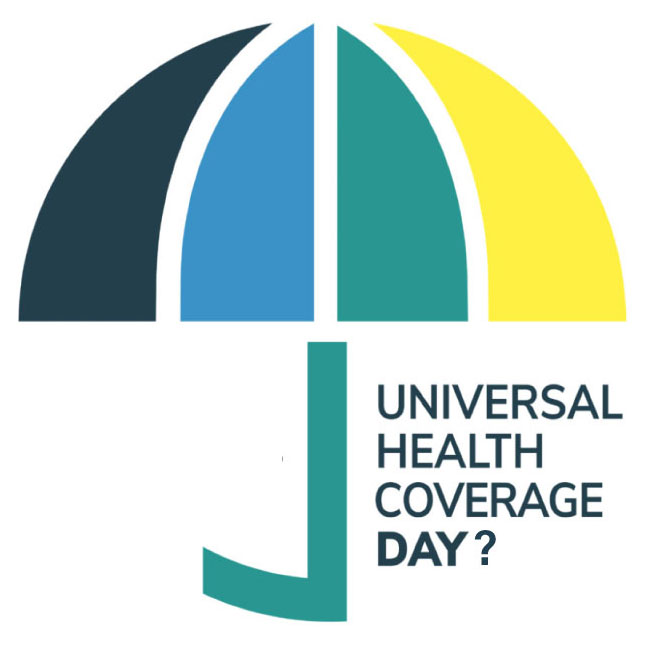In Japan
Global Health
-
GII/IDI
Japan CSO Network on Global Health (The GII/IDI Network): Securing a sustainable platform for dialogue with the Ministry of Foreign Affairs
4
The GII/IDI (Global Issues Initiative/Infectious Disease Initiative) Network is the only national network of civil society organizations (CSO) that work in the field of Global Health that has dialogues with the Japanese government. JOICFP serves as the secretariat of GII/IDI by organizing bi-monthly dialogues with the Japanese government, namely the Ministry of Foreign Affairs (MoFA) to facilitate information sharing, collaboration, and cooperation on Global Health projects between NGOs and government. Since 1994, when the network was established, JOICFP has organized 150 meetings as of August 2020, working with 30+ organizations. This network secures JOICFP of its presence and influence with the government in advocating for issues on SRHR, gender equality, and women’s empowerment.
Photo caption: UHC Day 2019 @The Ministry of Foreign Affairs 
UHC
Universal health coverage (UHC) ensures all people, everywhere, can get the quality health services they need without facing financial hardship. It is a fundamentally political goal, rooted in the right to health. In 2019, the United Nations adopted its first political declaration on UHC during the General Assembly, where every member state agreed to promote UHC.
At least half of the world’s population does not have full coverage of essential health services, and each year about 100 million people are pushed into “extreme poverty” (defined as living on US $1.90 or less a day) because they have to pay for health care.
Essential health services encompass everything from health promotion to prevention, treatment, rehabilitation and palliative care throughout the course of a lifetime. These include neonatal, child, adolescent and maternal health, sexual and reproductive health, infectious diseases, non-communicable diseases and much, much more.
UHC’s benefits extend beyond just health and have wider, positive effects on society at large. When people are healthier, they are able to be more productive and active contributors to their families, communities, and society at large. When people have less financial risk, families have less need to save for health costs and can spend their money on other things, boosting cash flow in the broader economy. When children are healthy enough to attend school, they improve their chances to become active contributors in their communities in the future.JOICFP supports UHC in cooperation with UHC2030 (https://www.uhc2030.org/) by running the campaign in Japan at the UHC Day website (https://uhcday.jp/), and hosting joint events to promote UHC in Japan.
At UHC Forum 2017, JOICFP conducted an official side event “UHC and Universal Reproductive Health Coverage: Challenges and Opportunities for Women and Adolescents,” with UNFPA and IPPF, where the Director General of WHO and representatives of UNFPA, IPPF, and other international organizations participated as a partner.
Gender Equality
Youth Advocacy & Empowerment
JOICFP has specifically supported activities of young women who strive to achieve gender equality and SRHR in Japan and beyond. Below are two examples of recent youth advocacy opportunities.
As part of its ILADY. project, JOICFP dispatched two ardent activists, Kazuna Yamamoto (left) and Kazuko Fukuda, to attend the Women Deliver 2019 Conference in Vancouver, Canada. Kazuko was later chosen as a youth representative in ICPD+20 and She Decides 25×25 (https://www.shedecides.com/25×25/kazuko-fukuda/).
In 2020, JOICFP launched the U30 project called (“#What is the Gender Equality Policy in Japan”. The project, supported by Gucci’s CHIME FOR CHANGE (https://chime.gucci.com/) campaign, was organized by young female students and workers under age 30. The team held numerous online seminars and youth dialogues. They also collaborated with young activists, University and non-governmental organizations, to learn and discuss about the new national five-year plan for advancing gender equality. The project successfully increased awareness of the public comment regarding the fifth revision of this plan among the youth, and resulted in gathering over 1,000 opinions. The organizers had a meeting with Ms. Seiko Hashimoto, Minister of State for Gender Equality, and directly handed these comments.
SDGs
Promoting SDGs 5 & 3 in Japan
JOICFP leads a civil society network for the achievement of SDGs called the “Japan Civil Society Network on SDGs (SDGs Japan),” with special interest in Goal 5: gender equality and women’s empowerment. As a co-chair of the Gender Unit of SDGs Japan, JOICFP organizes seminars to update global issues such as the G7 and the G20 and their influences on gender issues. JOICFP also took initiatives in increasing voices from civil society in formulating government policies. When revising Japan’s “SDGs Promotion Guiding Principles” in 2019, JOICFP’s call was answered by many organizations and individuals, and among all public comments, those on gender equality were sent more than on any other issue. As a result, the Guiding Principle put greater emphasis on the issue of gender equality.

